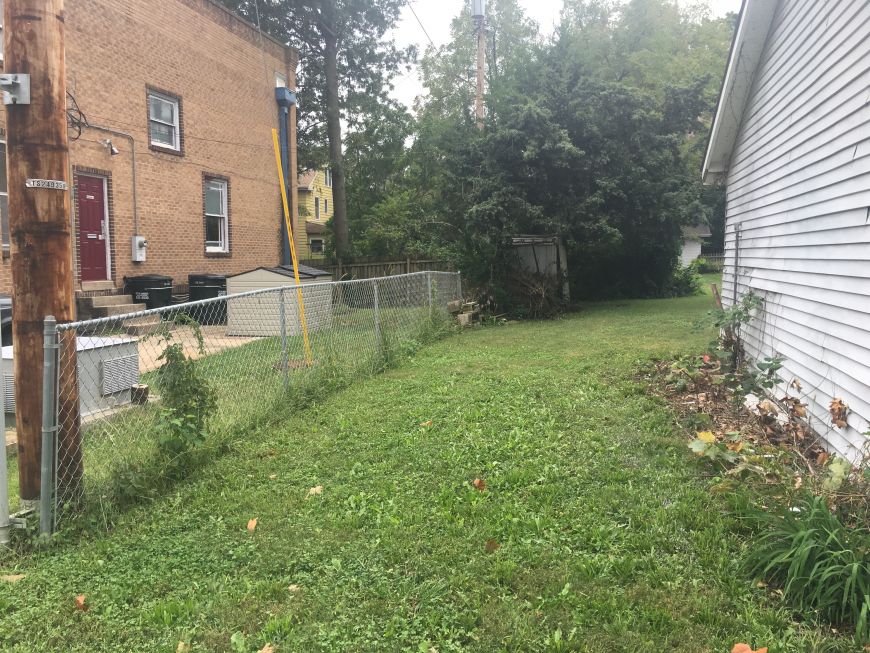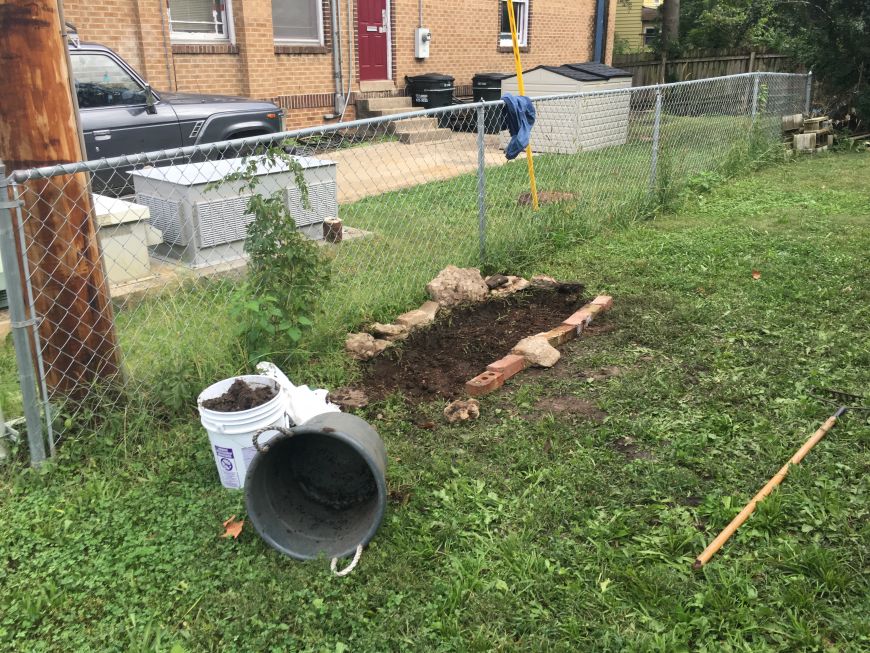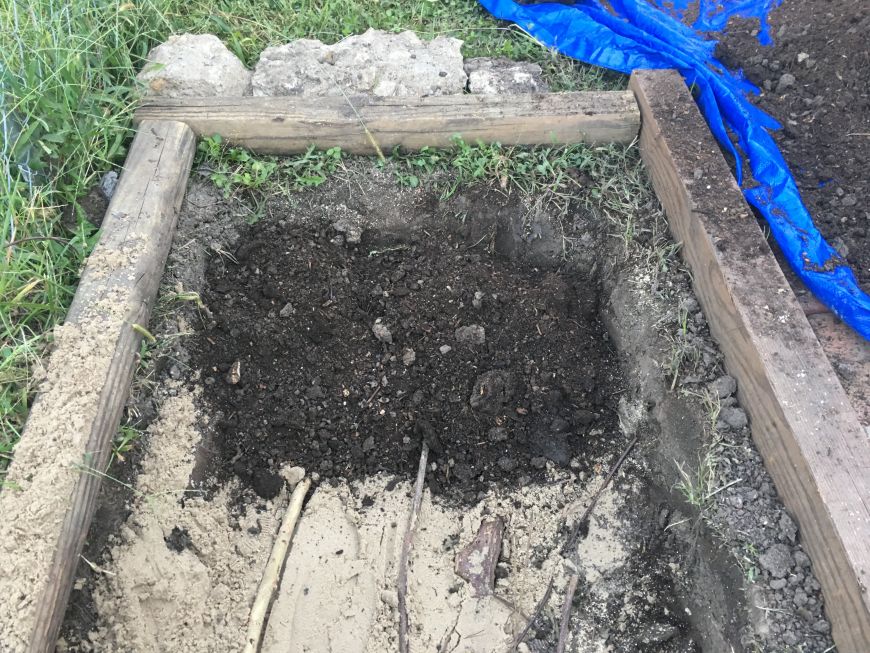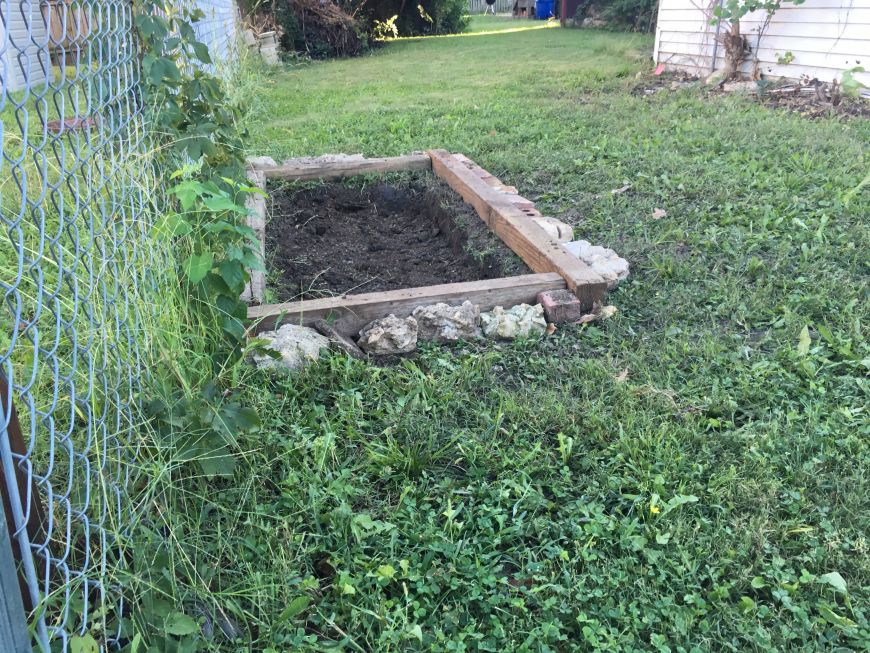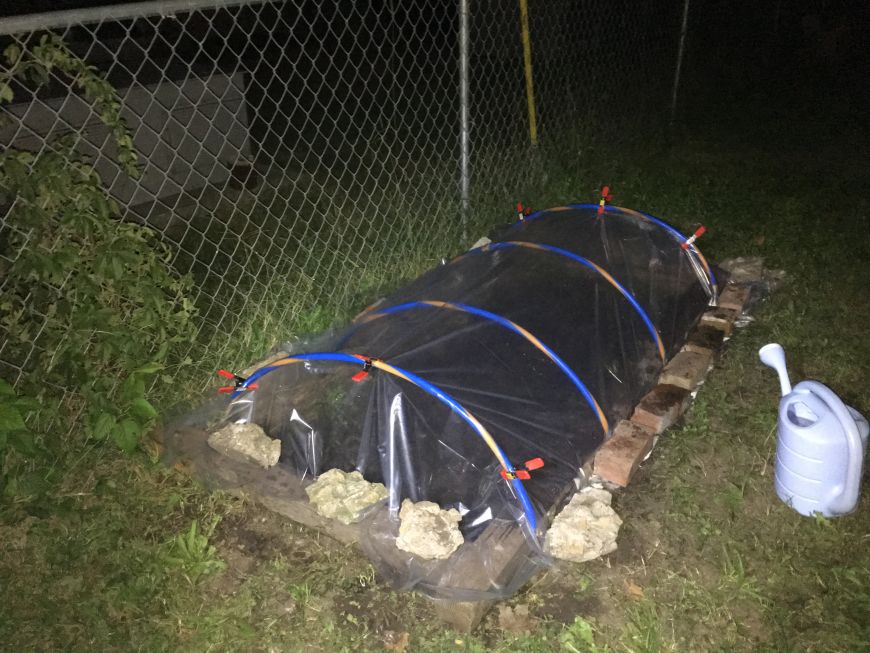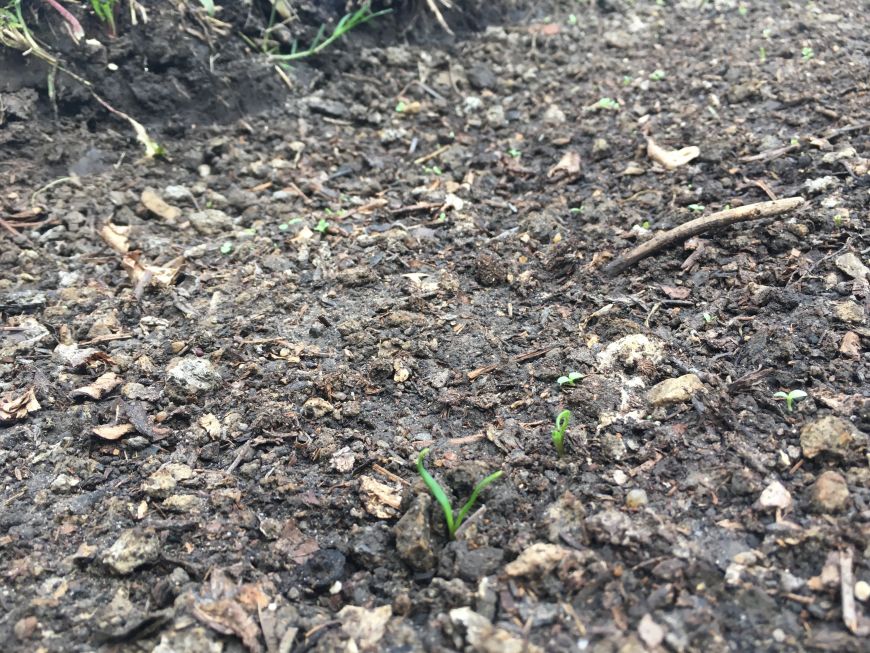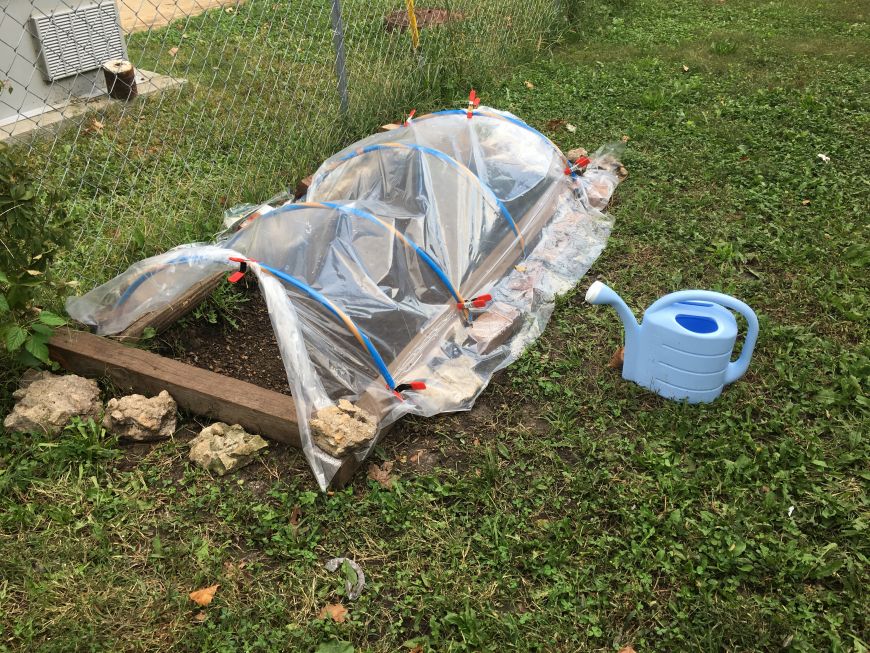Last week, my girlfriend and I decided to pick a project out of my collection of Mother Earth News magazines and just do it. Last month, they published an article on cold frame gardening, and that's what we choose. We went to the hardware store, gathered some supplies, and proceded to get our hands dirty!
As I soon learned, a "cold frame" garden is a small garden with a frame, usually made out of wood, that holds glass or transparent plastic to enclose the garden like a tiny green house. This allows folks to grow cold-weather friendly vegitables all throughout winter, and get a head start on the spring growing season.
Here's where we decided to put the garden. This view is facing to the South, and we choose it because there looks to be little that will block the sun during its low-in-the-sky journy in the winter months and because it's out of the way in the corner of the yard.
Now we began digging.
But first, an explenation.
Most of these "cold frame" gardens have wood and/or brick walls. They're built tall enough for a short plant to grow up maybe a foot or so. Well.. I didn't have a lot of wood or bricks, so I decided I would just dig further into the ground. In addition to this, I postulated that, with the roots deeper into the earth, the plants would be better insulated from the coming freeze. (Was this a good idea? Keep reading...)
So that's what I did, I dug a foot into the ground. And the top soil was only 6" deep.. so that's a lot of heavy clay that had to be removed! Hard work...
It was at this point that someone pointed out to me that this pit I just broke my back to dig out will fill with water when it rains hard enough. Crap!
Back to the hardware store. I needed something to help with drainage! I bought a bag of sand and a bag of vermaculite. Mixed them together and dumped it into the pit, along with some sticks (why not?), to make the first layer.
On top of that went a 6" layer of black cottage cheese from the bottom of the compost pile mixed with a large bag of cottonwood bur compost from the hardware store.
With the foundation and soil complete, it was now time for the "frame" part of the "cold frame"..
We sat down with some paper and pencils and began drawing up a plan. My plan involved lots of heavy 2x4s and 2x8s and clear poly sheeting - but it would require two people to lift it off the foundation without wrecking the plants growing below it. Logan played with the idea of recycling an old glass door or something.
It was at that point that I said maybe we could just make a tiny tunnel-style greenhouse (which, later, I would learn is called a "low tunnel") out of some metal, semi-circle metal pipe or something. She joked about using a hula hoop.. I said THATS A GREAT IDEA!! I looked up the dimensions of a hula hoop: 3ft. As it where, the width of the pit was three feet! I went the the dollar store, bought the last two hola hoops they had left over from their summer inventory, and as quick as snot on wax paper we cut them in half and screwed them to the 4x4 wood blocks. Wrapped it all in 3 mil poly, used some clamps to hold down the poly (maybe not even necessary), and we were done!!
As you can see, the plastic is secured with rocks and bricks in such a way that rain water will run off outside of the sunken bed and will, hopefully, not cause any drainage issues.
I'm now sitting here, typing, and wondering if - while the sunken bed garden will help keep the crops warm in the fall/winter, will it have the opposite effect in the spring? After all, if you do a google image search for "low tunnel garden," you will not see any like mine at all... so we'll just have to see if it works out or not!
Update: seeds have sprouted. We got lettuce, spinache and chives. In a month a month or two they'll be havested, then we'll plant some more cold hardy stuff like radishs and kale.
I've also learned that it needs to be opened up on hot, sunny days so it can vent, or else it will get too hot in there.
However, the poly needs to be taught or else rain water can pool and build up and get so heavy that it causes the tunnel to collapse (thankfully, I didn't learn this the hard way)

